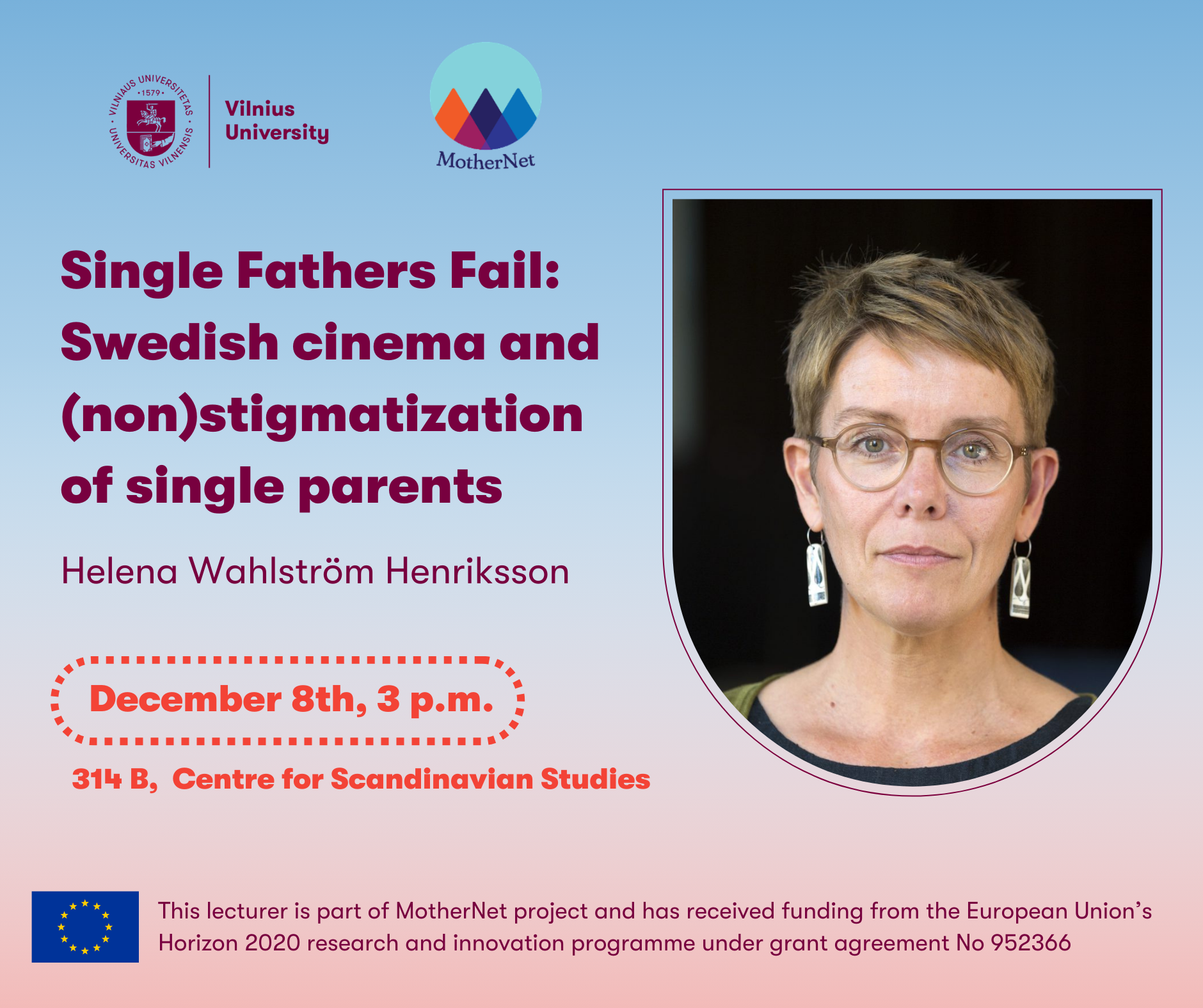
MotherNet member Professor Helena Wahlström Henriksson from Uppsala University will visit Vilnius University and on December 8 at 3 PM give a lecture Single Fathers Fail: Swedish cinema and (non)stigmatization of single parents (Room 314 B, Vilnius University Centre for Scandinavian Studies).
About the lecture:
Representations of fathers and fatherhood in popular culture contribute to establishing the “ideational – and ideological – centrality of fatherhood” across cultures (Wahlström Henriksson 2020, 323). From a feminist perspective it is crucial to investigate these representations, since they “are part of the social fabric within which understandings of fatherhood take shape (Wahlström Henriksson 2020, 324). Furthermore, since single parenthood is a highly feminized phenomenon, it is important to investigate how “media images and representations intertwine with political and social ideologies” (Gallagher 2014, 27) to convey messages about single fathers.
This chapter explores representations of single fathers in 20th century Swedish fictional film, how gender, class, ethnicity, and age figure in these representations, and how they speak to their contemporary political and ideological context. Premiering between 2013 and 2022, they all have a single father as a central character: Mig Äger ingen (Nobody Owns Me 2013), Min så kallade pappa (My So-called Dad 2014), Yarden (The Dockyard 2016); these films reached wide audiences and also received both critical awards and much media attention. The analysis engages in critical dialogue with international film studies scholarship on (single) fatherhood (Bruzzi 2005; Hamad 2013; Åström 2015; Dole 2021).
Given that lone/single parenthood is “normalized” rather than socially/morally stigmatized in Sweden, and given the ways that Sweden has promoted fathers – including single fathers – as (potential) primary parents in family policy, these films become particularly intriguing due to their predominantly negative construction of single fatherhood as marked by failure and dysfunction. I argue that they offer a counter-discourse to dominant socio-political discourses, and problematize the normative idea that single parenthood is normal and non-stigmatized. But in a political climate increasingly marked by conservatism and nationalism these films are also troubling, for they can be read as feeding into reactionary discourses about family forms and values. Hence, I read the figure of the “failing single father” as one that may question as well as strengthen dominant ideologies.
This visit is a part of MotherNet project and has received funding from the European Union’s Horizon 2020 research and innovation programme under grant agreement No 952366.






